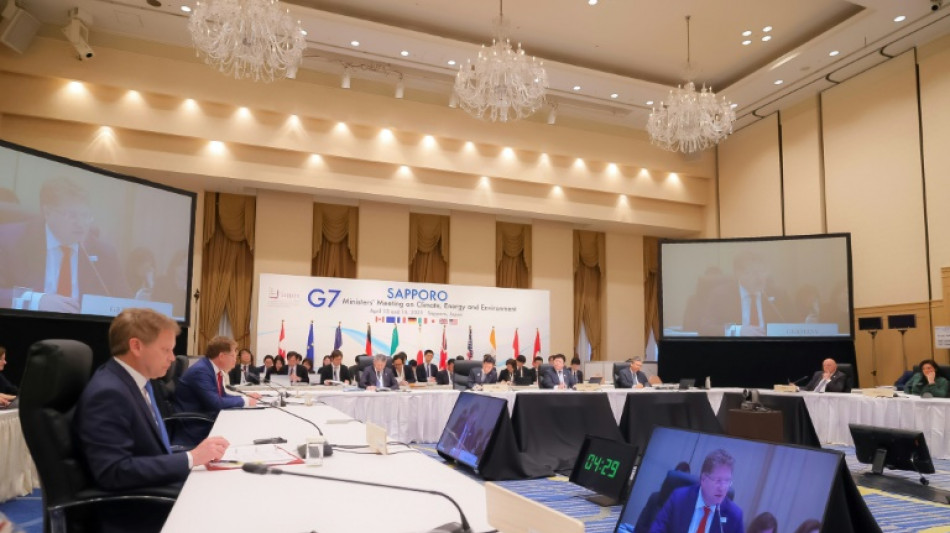

G7 pledges to quit fossil fuels faster, no new deadline
The G7 pledged on Sunday to speed up the phase-out of fossil fuels and urged other countries to do the same, but did not set any new deadlines on the exit from polluting energy sources such as coal.
In a statement following two days of talks in Japan, climate and environment ministers from the leading developed nations outlined efforts to keep global warming under the key 1.5 degree Celsius limit.
They vowed to "accelerate the phase-out of unabated fossil fuels so as to achieve net zero in energy systems by 2050 at the latest... and call on others to join us in taking the same action".
But the group did not offer any new deadlines beyond last year's G7 pledge to largely end fossil fuel use in their electricity sectors by 2035.
France's energy transition minister Agnes Pannier-Runacher said the wording on a fossil fuel "phase-out" was nonetheless a "strong step forward" ahead of the G20 and COP28 summits later this year.
"The most important progress we have made is clearly the fact that we agree to move away from non-carbon-offset fossil fuels," she told AFP.
Britain and France had proposed a new goal of ending "unabated" coal power -- which does not take steps to offset emissions -- in G7 electricity systems within this decade.
But with global energy supplies still squeezed by the war in Ukraine, that target faced pushback from other members, including bloc president Japan and the United States.
"I would obviously have liked to have been able to make a commitment to phase out coal by 2030," Pannier-Runacher said.
"This was not possible, and it is one issue on which we can still make progress in forthcoming discussions, particularly at COP28."
- Call to reduce 'gas demand' -
The Group of Seven, which also includes Germany, Italy, Canada and the EU, all target net-zero emissions by 2050 or sooner after signing the Paris Agreement to cap warming at well under 2C, and ideally 1.5C.
The ministers had been under pressure to announce ambitious steps after a major UN climate report warned last month that 1.5C increases would be seen in about a decade without "rapid and far-reaching" action.
But campaigners expressed fears ahead of the talks that Japan, supported by Germany and others, could lead backsliding on pledges such as ending new overseas fossil fuel financing.
G7 leaders said last year that the "exceptional circumstances" of Russia's war in Ukraine made gas investments "appropriate as a temporary response".
While Sunday's statement contains similar language, it also sets multiple parameters around such investments and highlights the "primary need" for "gas demand reduction".
Japan also wanted G7 recognition for its strategy of burning hydrogen and ammonia alongside fossil fuels to reduce carbon emissions -- which activists say only serves to extend the lifespan of polluting plants.
But the statement simply notes that "some countries are exploring" the potential of hydrogen fuels, adding that this should be "aligned with a 1.5C pathway".
Other new pledges were hotly debated in draft statements seen by AFP, such as a goal to halve CO2 emissions from G7 vehicles by 2035.
In the final statement, the countries only "note the opportunity" to do so.
N.Bobellon--MC-UK



